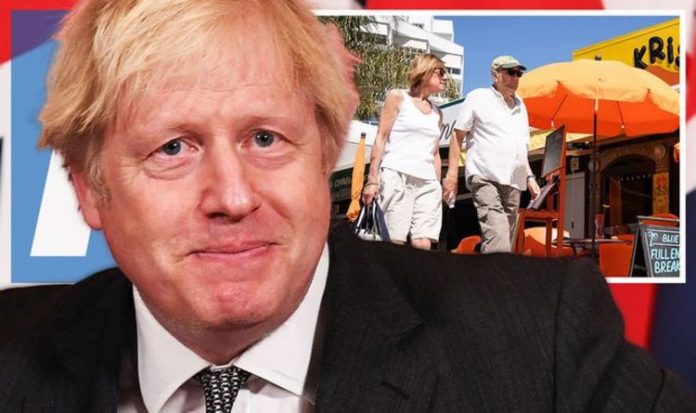The Prime Minister’s Christmas Eve negotiations with EU officials have been hailed as a victory as they prevented the UK from crashing out of the bloc on January 1. Now the transition period has come to an end, the UK is a completely independent nation. Some expats will have breathed a collective sigh of relief when news of a deal broke, too.
A whopping one million Britons live in EU nations — many are pensioners and were predicted to return to the UK if there was a no-deal Brexit for healthcare.
Operation Yellowhammer, the Government’s contingency plan in the event of a no deal Brexit, revealed fears that such expats could have overwhelmed the NHS if they returned in quick succession.
Political editor Tim Shipman explained that Mr Johnson’s no deal war cabinet was told that “gaps” would open in healthcare provided for Britons in EU member states if there was no trade agreement.
They were reportedly warned healthcare was the “most immediate risk” facing the Government.
Any reciprocal healthcare arrangement would cease upon Britain’s official exit from the EU, meaning state pensioners could have “become vulnerable” if they could not access treatment.
Mr Shipman explained: “Changes in how expats access healthcare would lead to between 160,000 and 260,000 Britons returning home in the two years after a no deal Brexit.”
This would have been between five and nine times the usual annual return rate.
Downing Street was trying to organise some side deals to protect expats’ healthcare at the time of this report’s release, in August 2019.
But ministers were also warned that some EU states may not cooperate in bilateral arrangements with the UK in the event of no deal.
READ MORE: UK expats set to suffer as France and Spain drag feet over Brexit deal
The withdrawal agreement also claimed any Britons working abroad and paying into their host country’s social security system would still be covered for healthcare, while UK state pensions would be uprated annually during the recipient’s lifetime.
The new deal states all EHIC cards issued before the end of 2020 will be valid until their expiry date, at which point the UK will issue a replacement.
This will be called a Global Health Insurance Card, but it remains unclear as to how Britons can obtain such a card.
Downing Street has also secured a new UK European Health Insurance card (EHIC) for all EU nationals in the UK from January 1 in the new Brexit deal.
UK state pensioners living in the EU before 2020 can keep using their own EHIC cards, but only in the state where they are registered as a resident.
As the Brexit deal has secured this arrangement, the NHS is less likely to have to cope with an influx of pensioners from across the EU.
This is especially crucial at the moment as the new coronavirus variant has tightened its grip across the UK and has plunged the NHS into crisis.







